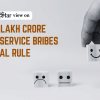Is the parliament above question?
The constitutional guarantee that the parliament, as a representative of the people, must provide a platform on which public concerns can be addressed, legislation passed, and executive action monitored may seem self-evident. It may also seem equally apparent that we, as the people, can and ought to hold the parliament accountable, if and when it deters from its track. Yet, in Bangladesh, the obvious is the anomaly. The role of the parliament, in the current political context, remains dubious, with 153 in a House of 300 elected without a single vote being cast, and amid accusations that the opposition – an essential component of a well-functioning democracy – is a "puppet" of the ruling party, forming a part of the cabinet. But questioning its efficacy is, apparently, reason enough to be accused of treason.
The extent of the parliament's existential angst – and that of democracy itself – can perhaps be gauged from a recent report published by Transparency International Bangladesh (TIB) titled Parliament Watch and the subsequent reaction from prominent MPs of the ruling and opposition parties. In the report, the anti-graft watchdog scrutinises the performance of the lawmakers during the 10th Jatiya Sangshad and reveals that only 6 percent of 388 working hours were spent in formulating and passage of 30 laws; only 29 of 350 lawmakers (including 50 women MPs) of the current parliament participated in the process of enactment of these laws and an average of 30 minutes were spent in total in passing a bill, including discussion of the bill and the Minister's speech. Let's take a moment to ponder this. It takes us considerably longer than 30 minutes to even discuss and agree on which articles should go in a four-page supplement, but are we to assume that it is ample time for the parliament to place, discuss and pass a law – a law which, to state the obvious, has colossal, and even irreversible, implications for the country and the people?
Which brings us to the next obvious question: if the MPs are not debating and passing laws in the parliament, what exactly are they doing in all that time spent in the sessions at a per minute cost of Tk. 111,000? Analysing the second to sixth session from June 2014 to July this year, the TIB concludes that the MPs lauded their parties and government 7,500 times and criticised the BNP-led alliance -- which has no presence in the parliament -- 7,268 times. The numbers, staggering as they are, can hardly come as a surprise to those who listen to the parliamentary sessions on radio from time to time and are left wondering: titillating as the gossip is, what exactly does a certain person's relationship with Khaleda have anything to do with allocations in the national budget?
Interestingly still, much of the praise of the government and criticism of the BNP came from none other than the Jatiya party-led opposition itself. A rare and laudable case of solidarity, you say? But when we consider that they did not take a strong position even on their own proposals, voting instead in support of the government decision, we are left wondering whether the TIB was accurate or seditious, as some MPs are suggesting, in terming the opposition as the "government's B-team."
Even if we were to ignore the context in which our current opposition came to take their place within the House, we surely cannot dispense with the crucial role that an opposition, as a shadow government, has to play in a Westminster-style parliament. The fact that our current opposition forms a part of the cabinet itself – an unprecedented occurrence in the history of this country and in the countries that practice this system – highlights an obvious conflict of interest. No one's saying that an opposition must by definition be uncivil towards the government, but it must keep the latter on its toes, scrutinising and debating the policies and bills proposed, recommending amendments when necessary and putting the spotlight on serious issues that affect the public but which may otherwise be ignored by the government.
Seen in that light, however, one might well ask: since when has Bangladesh had a functioning opposition in the parliament who actually cared about scrutinising legislation and holding the government accountable anyway? During the 9th Parliament (2009-13), for instance, the BNP-led opposition MPs joined a meagre 76 of 418 times, opting rather to wage street agitations that turned alarmingly violent towards the end; prior to that, the AL MPs skipped 223 of 373 sittings. How ironic that our parties should go to any length to be represented in the parliament but have so little interest in actual parliamentary proceedings! The sad truth is that we have long made a mockery of the parliament and democratic participation, the price of which has been paid by the people.
The parliament must, by its very definition, remain accountable to the people, allowing albeit fostering constructive criticism on its activities. It is thus shocking that the TIB report was not only gunned down on and off the floors of the parliament as being "seditious," and "motivated," but a parliamentary committee has recommended that the NGO affairs bureau cancels the registration of TIB for not apologising for their "derogatory comments" on the parliament. Earlier, Suranjit Sengupta, chief of the standing committee on the law ministry, had threatened to do so if the TIB didn't apologise within three days, adding that the "the organisation will also have to vow that it will never ever make any comment on parliament and the country's constitution." In response, the TIB, which has published Parliament Watch every year since 2001, had said they would apologise if the committee can identify where in the report they made a mistake.
The committee or the outraged MPs are yet to specify what, if anything, is incorrect in the TIB's research findings or methodology. Apparently, the MPs are furious over a particular phrase used by the TIB chief, but is the use of an expression, however injudiciously made, enough, we ask, to justify the cancellation of registration of an organisation of such importance as the TIB? The committee is recommending that a new provision be introduced in the Foreign Donations (Voluntary Activities) Regulation to revoke the registration of any NGO for "indecent comment" on the country, parliament or the constitution. What exactly, however, counts as indecent comment? Wouldn't any criticism against the government or any form of dissent then be reason enough to have an NGO's registration cancelled? In addition, going by Sengupta's comments, are we to accept that the TIB – and by corollary, any other NGO – can never make a comment on the parliament? We can only shudder at what the repercussions of this would be for freedom of expression and an already shrinking space for civil society in the country.
Sengupta declared that anyone who violates the constitution or speaks against it should be charged with sedition. With all due respect to the MP and in fear of being reprimanded, I ask, what happens when MPs themselves violate constitutional guarantees of freedom of expression and the right to dissent? What happens when they cannot fulfil their constitutional mandate as parliamentarians? Who holds them to account, if those who dare raise a voice are castigated?
The writer is an activist and journalist.

 For all latest news, follow The Daily Star's Google News channel.
For all latest news, follow The Daily Star's Google News channel. 








Comments